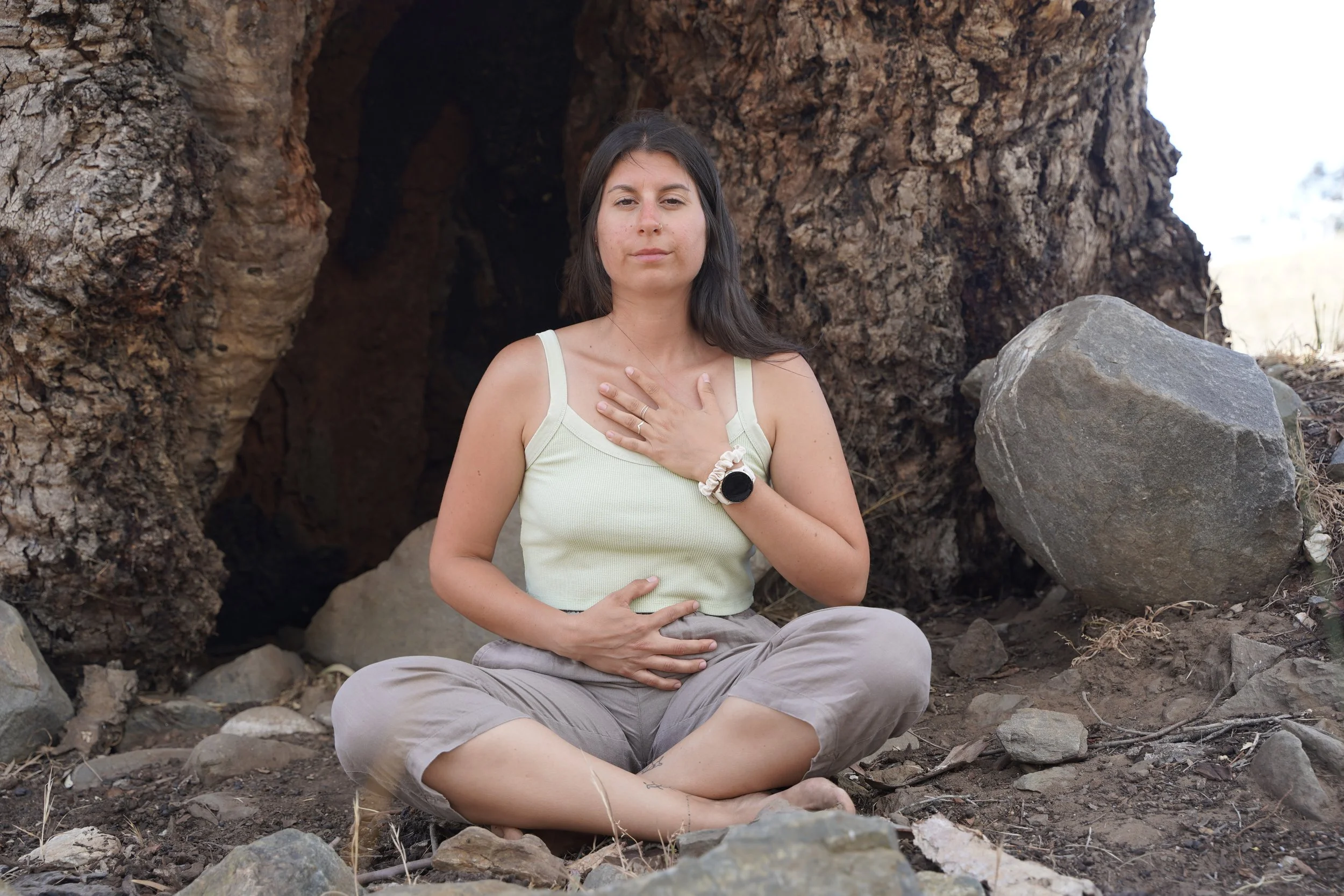#16 – Benefits of Nature-Based Counselling
Benefits of Ecotherapy
This article discusses:
The main benefits of ecotherapy
Why ecotherapy is healing and calming
Two evidence-based studies:
One about forest bathing’s benefits
One about the links between stress reduction and green scenery
Hello dear community,
It’s lovely to write to you again.
Each month, I write an article I call a “story” to speak about my professional adventures and/or to share with you some of my personal journey.
This month, I’d like to reflect on some of the benefits of ecotherapy.
Why did I choose ecotherapy as my main modality?
Choosing ecotherapy as the foundation of my counselling practice has been a long and bumpy road. As I’ve shared in previous articles and on the “About” section of my website, I’ve studied a fair bit and have worked in the helping industry for over 10 years. I’ve held diverse roles—from disability support worker to humanitarian worker, project manager in education, and disability team leader. I’ve explored various sectors within the helping professions, including education, crisis management, aged care, disability, and now psychotherapy. I’ve always loved the challenge of discovering new worlds and working with people from diverse backgrounds and cultures.
My own personal therapy journey led me to study psychotherapy, and suddenly, everything made sense.
I went deeper into meaning-making when I studied ecotherapy and the relationship between humans and the natural world. It makes perfect sense that humans are deeply connected to nature. I mean—we are nature. It is only natural to feel more grounded and connected when outdoors.
So why not integrate trauma-informed, person-centred, existential, and other counselling modalities with ecotherapy?
And so here I am—mixing a few psychotherapy approaches and doing my own cooking recipe!
I feel like my offerings to you are a mix of models—a puzzle where we explore together what works and what doesn’t.
Together, we’re assembling the pieces, and Nature—Mother Earth—is our glue.
Let me now share some of the benefits of ecotherapy: working with Nature, being surrounded by forests, green scenery, and all kinds of natural environments.
The Benefits of Ecotherapy
Nervous system regulation & grounding: It’s a whole-body experience where the mind, body, and soul are deeply immersed in natural settings. Through stillness, observation, and sensory practices, we can calm the mind and centre the body.
Reducing stress, anxiety & depressive symptoms: Nature-based interventions relieve emotional distress and offer deep psychological ease.
Enhancing mood and emotional resilience: Spending time in green spaces uplifts emotions, promotes balance, and fosters positivity.
Cognitive restoration & clarity: Natural environments replenish attention and improve mental flexibility and focus.
Increasing nature connectedness & sense of belonging: Ecotherapy nurtures a felt bond with the Earth and the web of life, restoring a sense of being rooted and held.
Boosting self-efficacy & empowerment: Guided outdoor activities such as gardening, wilderness immersion, hiking, and camping can support inner strength, agency, and confidence.
Improving social cohesion & reducing isolation: Group modalities foster connection, shared meaning, and mutual support in safe, nurturing settings.
Holistic healing: Being in and with Nature offers a mind–body–spirit renewal, supported by embodied experiences like gardening, forest bathing, or nature art. It is a holistic and transformative experience.
Two Evidence-Based Studies
Study 1: Forest Bathing (Shinrin‑yoku)
A meta-analysis of 36 interventional studies (N ≈ 3,554 across English, Chinese, and Korean publications) found that forest bathing significantly reduces symptoms of anxiety and depression. Physiological outcomes (such as blood pressure and heart rate) were less consistently impacted, but the psychological benefits were clearly improved across diverse populations.
To summarise: this article shows strong reductions in anxiety and depression symptoms across various populations and forest environments.
Reference:
Siah, C. J. R. S., Goh, Y. S., Lee, J., Poon, S. N., & Ow Yong, J. Q. Y. (2023). The effects of forest bathing on psychological well-being: A systematic review and meta-analysis. International Journal of Mental Health Nursing, 32(4), 987–1005. https://doi.org/10.1111/inm.13131
Study 2: Nature Exposure & Stress Reduction
“In our stressful modern age, the health effects of a natural environment are very important. Researchers have demonstrated a significantly positive relationship between participants' exposure to natural environments and reduced risk of stress (Chen et al., 2018; Elsadek et al., 2019; Morita et al., 2007; Ochiai et al., 2015).”
A systematic review of 12 experimental and cross-sectional studies (total N ≈ 1,842) showed that exposure to natural environments—especially forests—significantly reduces both perceived and physiological stress. The brain does not differentiate between the two.
To confirm the benefits of forest bathing—and ecotherapy more broadly—the article also states that “numerous studies have confirmed that urban areas may be considered more stressful environments compared to forests (Gidlow et al., 2016; Hartig et al., 2003; Toda et al., 2012; Huang et al., 2020).”
To summarise: this study shows significant reductions in cortisol (the stress hormone), blood pressure, heart rate, and self-reported stress.
Reference:
Yao, W., Zhang, X., & Gong, Q. (2021). The effect of exposure to the natural environment on stress reduction: A meta-analysis. Urban Forestry & Urban Greening, 57, 126932. https://doi.org/10.1016/j.ufug.2020.126932
Tell me about you.
How do you connect with the natural world?
What does being in nature make you feel?
I’m sending you pure and gentle love, full of light and warmth.
Take care of your whole self, each other, and the wild world around and within you.
With nature’s guidance,
Sarah from Sarah Frustié Therapy
Written 30/07/2025
Published 31/07/2025


